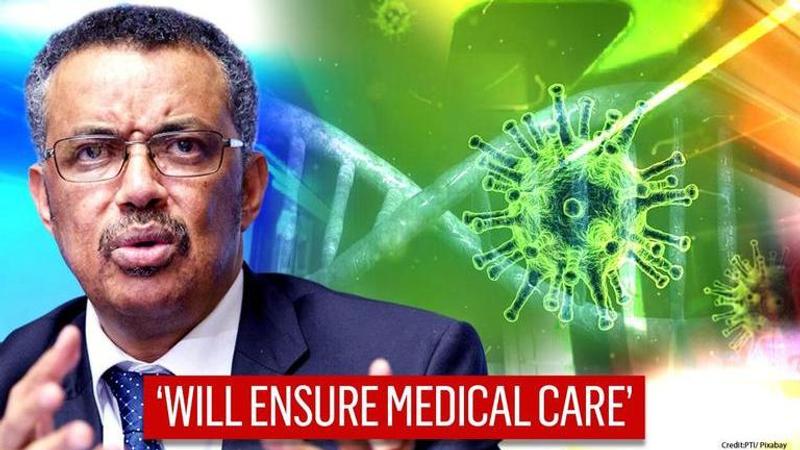Published 08:51 IST, October 31st 2020
WHO to closely monitor Greece & Turkey after earthquake; will provide medical assistance
WHO chief Tedros said that the organisation will closely monitor the situation in Greece & Turkey following the earthquake that struck on Friday.

While speaking at a media briefing on October 30, World Health Organisation (WHO) Director-General Tedros Adhanom Ghebreyesus said that the organisation will closely monitor the situation in Greece and Turkey following the earthquake that struck on Friday.
He also said that the WHO will work with the countries and provide emergency assistance if and when required. Earlier on Friday, October 30, an earthquake of magnitude 6.6 hit the Izmir province in Turkey and several parts of the Greek islands in the region. The seismologists from Greece stated that the earthquake's magnitude had reached 6.9. As the two countries work to control the situation, multiple casualties and fatalities are being reported. While Izmir has reported 12 deaths and 419 people with confirmed injuries, two children have been found dead under a collapsed wall in Samos island as the search operation continues.
"Our thoughts are with all those affected"
Speaking at the press briefing, WHO chief Tedros Adhanom Ghebreyesus said that the organisation is following the 'unfolding situation in Greece and Turkey'. He also expressed condolences for all the people affected by the earthquake in the region. The WHO chief also spoke about the mid and long term impact of COVID-19 infection.
"I want to start by noting that WHO is closely following the unfolding situation in Greece and Turkey after the earthquake today. We will work with the two countries to ensure that emergency medical care is provided to those in need. Our thoughts are with all those affected," said WHO chief Tedros during the virtual media briefing.
While speaking about the impact of COVID-19, he said, "Over the past few months, I have heard firsthand from people who face mid to long-term effects of COVID-19 infection. What’s really concerning is the vast spectrum of symptoms that fluctuate over time, often overlap and can affect any system in the body. From fatigue, a cough and shortness of breath, to inflammation and injury of major organs - including the lungs and heart. And even neurological and psychologic effects."
"Although we’re still learning about the virus, what’s clear is that this is not just a virus that kills people. To a significant number of people, this virus poses a range of serious long-term effects. While people do recover, it can be slow – sometimes weeks or months – and it is not always a linear route to recovery. Though exact numbers of people experiencing the long-term effects are not yet clearly defined, post COVID-19 symptoms and complications have been reported in both non-hospitalised and hospitalised patients," he added.
"WHO will continue to do more research to establish the best standards of care to accelerate recovery and prevent such complications. It is imperative that governments recognise the long-term effects of COVID-19 and also ensure access to health services to all of these patients," Tedros further added.
(With inputs from ANI/Sputnik)
Updated 08:51 IST, October 31st 2020




